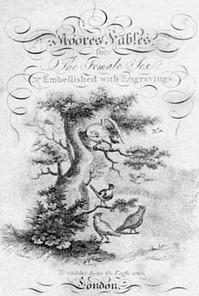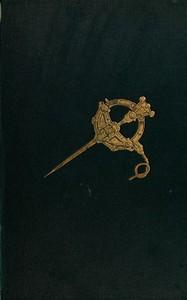|
|
Read this ebook for free! No credit card needed, absolutely nothing to pay.Words: 47420 in 8 pages
This is an ebook sharing website. You can read the uploaded ebooks for free here. No credit cards needed, nothing to pay. If you want to own a digital copy of the ebook, or want to read offline with your favorite ebook-reader, then you can choose to buy and download the ebook.

: A Breeze from the Woods 2nd Ed. by Bartlett W C William Chauncey - California Description and travel; American essays 19th century@FreeBooksWed 07 Jun, 2023 ever put upon any of the feline tribe, would have come to grief. Their short, stumpy tails and bad countenances came near drawing the fire of one of the pieces. But although wild game is better than tame meat, there is no evidence on record that a wild cat is any better than a tame one. They only needed handsome tails to have been taken for half-grown tigers. If every creature with an unlovely countenance is to be put to death on that account, what would become of some men and women who are not particularly angelic? The pussies are out for their dinner, and so are we. We cannot eat them, and they must not eat us. Each of them may feast on a brace of song-birds before night. But it may be assumed that each of the females who make up the party are competent to make way with a brace of innocent doves for dinner. If it were not for the fox, the wild-cat and the hawk, the quail is so wonderfully prolific here that it would overrun the country, destroying vineyards and grain fields without limit. I suspect, also, that the great hooded owl drops down from his perch at night, and regales himself on young quails, whose nightly covert he knows as well as any bird in the woods. It is easy enough to find out what the owl eats, but does anybody know who eats the owl? You may criticise him as a singing bird, and he is rather monotonous along in the small hours of the morning. But worse music than that may be heard in-doors, and not half so impressive, withal. There is no harm in noting that the two or three attempts to sing "Sweet Home" by the camp-fire on the first night were failures. At the time when the tears should have started, there was a break and a laugh which echoed far up in the ravine. Nobody had lost a home, but five happy mortals had found one, the roof of which was of emerald, supported by great pillars of redwood, which cast their shadow far out in the wilderness, as the flames shot up from the camp-fire. The game supper was no failure. One only needs to throw overboard two-thirds of the modern appliances of the kitchen, including the cast-iron stove--that diabolical invention of modern times--to insure perfect success in the simple business of cooking a dinner. Do not, good friends, forget the currant jelly, or you may weary of doves and cotton-tails, as the Israelites did of quails and manna. And if you want the elixir of life, make the tea of soft spring water, which you will never find issuing out of any limestone or chalk rock, or where flints much abound. The little white tent had a weird aspect, as though it might have been a ghost in the forest. It was absurdly intrusive, and harmonized with nothing in the woods or foreground save the white wall of mist that every night trended landward from the ocean, but never touched the shore. After a little time the novelty of the camp wears off, and a blessed peace comes down on weary eyes and souls. There is no use in keeping one eye open because a dry stick cracks now and then, or the night-hawk sputters as he goes by. Daylight comes at four o'clock, and the woods are thronged with animal life. The song-sparrow begins to twitter, finches and linnets hop about; and down in the oaks the robins sing, and the woodpeckers are tapping the dry limbs overhead. The gray squirrel arches his handsome tail and runs along in merry glee; and there is such a wealth and joy of abounding life--such a sweet concord of sounds and brimming over of gladness--that Heaven seems a little nearer for the morning anthem. But a heavenly state is not inconsistent with a reasonable appetite. Did it ever strike you that the asceticism of the middle ages, which retreated to the cloister content with water-cresses as a bill of fare, was never very fruitful of high and profound discourse? The philosopher who goes up into the clouds to talk, and prefers gruel to trout before going, makes an epigastric mistake. He has taken in the wrong ballast; and has omitted some good phosphorescent material, which might have created a nimbus around his head as he entered the clouds. A mistake in the gastric region leads to errors of the head and heart. I do not know whether there is any ground of hope for a people who have not only invented cast-iron stoves, but have invented "help" in the form of the she-Titans who have made a wholesome dinner well-nigh impossible. Death on a pale horse is poetical enough. But death in the black stove of many a kitchen is terribly realistic. If these trout were to be cooked by "hireling hands," the very woods would be desecrated, and the smoke of the sacrifice would be an abomination. Does a brook trout ever become a salmon trout? But the former goes down to the sea, and comes back the next year a larger fish. He ascends the same stream, and may be a foot or more in length, according to the size of the stream. I refer, of course, to those Coast Range streams which communicate with the ocean. If a bar or lagoon is formed at the mouth of a stream, so that it is closed for a few months, and nearly all the fish are taken out by the hook, on the opening of the lagoon or creek a fresh supply of trout will come in from the ocean, differing in no conceivable way from brook trout, except that they are larger. They take the grasshopper and the worm like honest fish bred up to a country diet. Some ichthyologist may show a distinction without a difference. The camp-fire reveals none. The ocean slope of the Coast Range is much the best for a summer excursion. The woods and the waters are full of life. There is a stretch of sixty miles or more from the San Gregorio Creek in San Mateo County, to the Aptos Creek on Monterey Bay, in Santa Cruz County, where there is an average of one good trout stream for every five miles of coast line. There are wooded slopes, dense redwood forests, and mountains in the background where the lion still has a weakness for sucking colts, and the grizzly will sometimes make a breakfast on a cow, in default of tender pigs. But neither lion nor bear is lord of the forest. Both are sneaking cowards, the lion not even fighting for her whelps. It is better, however, on meeting either, not to prolong the scrutiny, until you have surveyed a tree every way suitable for climbing. The "shinning" having been done, you can make up faces and fling back defiance with some show of coolness. Then all along there is a fore-ground of yellow harvest fields, farm-houses and orchards; the cattle cluster under the evergreen oaks at mid-day. Wide off is the great sounding sea with its fretting shore line and its eternal reach of waters--so near and yet so remote. Low down on the horizon are the white specks of ships drawing near from the other side of the globe--coming perhaps from the dear old home to lay treasures at your feet in the new one--linking the new and the old together by this swift and silent journey, begun as of yesterday, and ended to-day. There is no place afar off. The palms lift up their "fronded" heads just over there; and the cocoanut drops down as from an opening heaven--more is the shame that those frowsy, low-browed cannibals are not content therewith, but so affect the rib roast of a white man, and that too in a tropical climate! If men would always look up for their food they might become angels. But looking down, they may yet become tadpoles or demons. It needs but a little Buddhism grafted on to the development theory to turn some of the human species back into devil-fish. For when one is wholly given up to seek his prey by virtue of suction and tentacula, he might as well live under water as out of it. It might be hard to go back and begin as a crocodile; but if some of our species have once been there and show no improvement worthy of mention since, why the sooner these voracious, jaw-snapping creatures are turned back perhaps the better. Ketchum has made a hundred thousand dollars this year in buying up doubtful titles and turning widows and orphans out of their homes. Tell me, oh Brahmin, if this man was not a crocodile a thousand years ago? And if he slips any where a link in his chain of development, where will he be a thousand years hence? It is a good thing to pitch the tent hard by the seashore once in a while. Salt is preservative; and there is a tonic in the smell of sea weed. Your best preserved men and women have been duly salted. The deer sometimes come down to get a sip of saline water, and are partial to mineral springs, which one can find every few miles along the mountain slopes. The sea weeds, or mosses, are in their glory. Such hues of carnation and purple, and such delicate tracery as you shall never see in any royal garden. A hook was thrown in for the fish, perchance, with the dyes of Tyrian purple. But there came out a great wide-mouthed, slimy eel, which was kicked down the beach into the water, with a hint never to reveal so much ugliness again on any shore of the round world. Your sea-lion has no beauty to speak of; but he is an expert fisher and knows how to dry himself upon the rocks. When a hundred of them take to the water, with their black heads bobbing about, they might be taken for so many shipwrecked contrabands. How many ages were required for the ocean to quarry these grains of sand, which under a glass, become cubes and pentagons as goodly as the stones of Venice? No more under this head, for "quahaugs" and mussels are terribly anti-suggestive. The young quails are only half-grown; but they run about in very wantonness in all directions. How keen is the instinct of danger in every tenant of the woods; and yet birds hop about in all directions with a consciousness that no evil will befall them. A couple of wood-peckers on a trunk of a tree just overhead, have curiously ribbed and beaded it up with acorns fitted into holes for winter use. So nicely is the work done, and so exact the fit, that the squirrels cannot get them out. And yet the wild doves which we want for our breakfast, flit away upon the first sign of approach. The era of shot-guns is not a millennium era, and the screech of a bursting shell is not exactly a psalm of life. The tenderness of the Hindoo in the matter of taking life, for food, I suspect, is because of his philosophy. Soul transmigration holds him in check, otherwise he might be found eating his grandmother. But a school-girl riots on tender lambs, and is not a whit afraid of eating her ancestors. There is a curious linking of innocence with blood-shedding in our times, enough to suggest an unconscious cannibalism, one remove from that of the happy islanders. An old farmer came up to see us, attracted by the white tent, and having a lurking suspicion that we might be squatters. He confirmed the theory that the flow of water from springs in this region was permanently increased by the great earthquake. "You see," said he, "it gave natur' a powerful jog." After the shock, a column of dust arose from the chalk cliffs and falling banks on the shore line, which could have been seen for twenty miles. There was a noise as of the rumbling of chariots in the mountain tops, and the smoke went up as from the shock of armies in battle. The great sea was silent for a moment, and then broke along the shore with a deep sigh as though some mighty relief had come at last. All the trees of the mountain sides bowed their heads, as if adoring that Omnipotence which made the mountains tremble at its touch. If one could have been just here, he might have seen the grandest sight of ages; for this was the very focus of the earthquake. As it was, we got no impression of that event above a suspicion that a mad bull was butting away at the northwest corner of a little country church, with some alarming signs that he was getting the best of the encounter. One learns to distinguish the sounds of this multitudinous life in the woods, after a few days, with great facility. The bark of the coyote becomes as familiar as that of a house dog. But there is the solitary chirp of a bird at midnight, never heard after daylight, of which beyond this we know nothing. We know better from whence come the cries, as of a lost child at night, far up the mountain. The magpies and the jays hop round the tent for crumbs; and a coon helped himself from the sugar box one day in our absence. He was welcome, though a question more nice than wise was raised as to whether, on that occasion, his hands and nose were clean. There is danger of knowing too much. It is better not to know a multitude of small things which are like nettles to the soul. What strangely morbid people are those who can suggest more unpleasant things in half an hour than one ought to hear in a life-time! Did I care before the question was raised, whether the coon's nose were clean or otherwise? Now there is a lurking suspicion that it was not. If you offer your friend wine, is it necessary to tell him that barefooted peasants trampled out the grapes? Is honeycomb any the sweeter for a confession that a bee was also ground to pulp between the teeth? We covet retentive memories. But more trash is laid up than most people know what to do with. There is great peace and blessedness in the art of forgetfulness. The memory of one sweet, patient soul is better than a record of a thousand selfish lives. It was a fine conceit, and womanly withal, which wove a basket out of plantain rods and clover, and brought it into camp filled with wild strawberries. Thanks, too, that the faintest tints of carnation are beginning to touch cheeks that were so pallid a fortnight ago. Every spring bursting from the hill-side is a fountain of youth, although none have yet smoothed out certain crow tracks. The madrono, the most brilliant of the forest trees, sheds its outer bark every season; when the outer rind curls up and falls off, the renewed tree has a shaft polished like jasper or emerald. When humanity begins to wilt, what a pity that the cuticle does not peel as a sign of rejuvenation! There is also a hint of a sanitary law requiring people averse to bathing to peel every spring. But let us hope that the musician is born who will yet come to the woods and take down all the bird songs. What a splendid baritone the horned owl has! Who has written the music of the orioles and thrushes? Who goes to these bird operas at four o'clock in the morning? There is room for one fresh, original music book, the whole of which can be written at a few sittings upon a log just where the forests are shaded off into copses and islands of verdure beyond. Free books android app tbrJar TBR JAR Read Free books online gutenberg More posts by @FreeBooks
: The Levellers A Dialogue Between Two Young Ladies Concerning Matrimony Proposing an Act for Enforcing Marriage for the Equality of Matches and Taxing Single Persons by Anonymous - Marriage@FreeBooksWed 07 Jun, 2023

: Zoological Illustrations Volume 3 or Original Figures and Descriptions of New Rare or Interesting Animals by Swainson William - Animals Pictorial work@FreeBooksWed 07 Jun, 2023
|
Terms of Use Stock Market News! © gutenberg.org.in2025 All Rights reserved.






